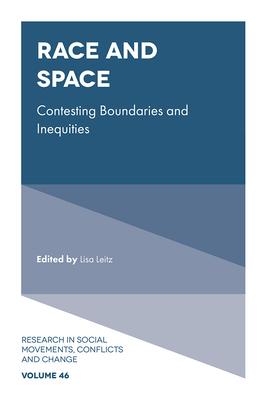The 2020 Black Lives Matter (BLM) protests highlighted with sharp clarity the role of race in social conflict and social movements. Building on more than a century of political and sociological scholarship, Race and Space considers the connections between race as a descriptor of physical differences between humans and space as a geographic location, and their subsequent impact on the human experience.
The chapters address racialized issues spanning from how the characteristics of our community shape whether we experience police or immigrant violence, whether first-hand experience (or lack thereof) of this violence is likely to shape one's choice to engage in ethno-racial justice activism, to analysing how the space of the prison shapes one's sense of self and political possibility post-incarceration. Drawing together key drivers of activism such as flaws within the criminal justice system, race, ethnicity, and citizenship, this collection demonstrates how these elements interact to shape immigration policy and the experience of being accepted as a full member of one's society.
Emphasising location-specific human experience and incorporating insights from geography, Race and Space's careful study of the differences of physical spaces gives rise to more complete explanations for social issues and variances in social movements.
